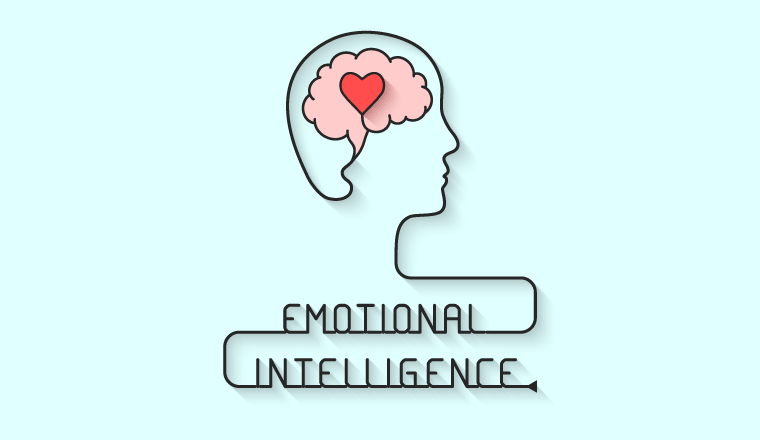Emotional intelligence (EI) or Emotional Quotient (EQ) is the buzzword that has been gaining popularity over the past few years. It may sound like just some trendy words, but EQ has a huge impact on our lives. It helps to counter real-world accusations in everyday life.
In-fact, emotional intelligence assessment can be the key to success in both personal relationships and professional growth.
An emotional intelligence assessment is necessary to know where you stand and how capable you are, to cope with day-to-day challenges.

In this blog, we will explore what emotional intelligence is, why it matters, and how we can cultivate it in our everyday lives.
Table of Contents
What exactly is emotional intelligence?
Emotional intelligence is the ability to identify your feelings, as well as the feelings of others. This understanding can improve your EQ, which will help you create a better life.
Emotional intelligence is learning to regulate your feelings and, constructively use them to achieve the intended results.

Emotional intelligence also includes the capability to empathize with others, so you can communicate effectively with them. This is important as it also plays a vital part in our relations with others.
When we are emotionally intelligent, we’re better equipped-
- to handle conflict,
- make strong connections, and
- achieve our desired outcomes.
What is emotional intelligence assessment-
It is the process of analyzing your EQ via different methods. It also helps us to be more tone- apprehensive (fearful or uneasy about something that might happen), which can lead to better decision-making and ultimately to achieve a more fulfilling life.

Emotional Intelligence Assessment is generally assessed in 3 ways–
Self-report: This method involves individuals assessing and reporting their own emotional intelligence through questionnaires or surveys. e.g. Emotional Quotient Inventory (EQ-i) is widely used under this emotional intelligence assessment.
Other-report: This involves gathering information about an individual’s emotional intelligence from the perspectives of others, such as peers, supervisors, or family members. e.g. 360-degree feedback assessment is widely used under this emotional intelligence assessment.
Ability measures: Ability measures of emotional intelligence assess an individual’s actual skills and abilities to perceive, understand, and manage emotions.
These measures typically involve performance-based tasks or assessments that require individuals to demonstrate their emotional intelligence competencies. e.g. MSCEIT is a performance-based ability measure used under this emotional intelligence assessment.
Let’s discuss various methods to help you analyze your emotional intelligence assessment
The Emotional Capital Report- (the world’s most advanced Emotional Intelligence assessment)
The ECR Self-assessment is run online. The ECR is designed specifically for assessing EQ in the context of leadership.
So if you want to know your leadership abilities, you must give this assessment a try and see what are your strength and weakness.
Answer a series of relatively simple questions. Based on the answers, the ECR then provides an EQ score split into the 10 competencies of RocheMartin’s Emotional Capital framework.
10 competencies are self-knowing, self-control, self-confidence, self-reliance, empathy, relationship skills, straightforwardness, adaptability, optimism, and self-actualization.
The EQ assessment report also includes a validity indicator and provides participants with a benchmark score.
The participants can measure their progress in the future by referring to that score.
The Emotional Quotient Inventory-
This is a set of 133 questions, and the assessment is done by evaluating 15 emotional and social competencies grouped into five separate factors.
They are:
- (intrapersonal) self-regard, emotional self-awareness, assertiveness, independence, self-actualization;
- (interpersonal) empathy, social responsibility, interpersonal relationships;
- (stress management) stress tolerance, impulse control;
- (adaptability) reality-testing, flexibility, problem-solving; and
- (general mood) optimism, happiness.

This tool is mostly used as the results of the EQ-i can serve as a valuable guide for personal growth, leadership development, and enhancing interpersonal skills.
The Mayer-Salovey-Caruso Emotional Intelligence Test (MSCEIT)-
It is an ability-based test of emotional intelligence. It is divided into 4 categories-
- Perceiving emotions,
- Using emotions,
- Understanding emotions, and
- Managing emotions.

Though it is a fairly new way of emotional intelligence assessment, it is gaining in popularity, and it is considered to be one of the most rigorous and psychometrically sound measures of emotional intelligence available.
The 360 EQ (Talent Smart)
The 360 EQ takes just 10 minutes to complete and provides participants with insights into their overall EQ, self-awareness, self-management, social awareness, and relationship management.
The 360 EQ uses Hollywood movie clips to bring emotional Intelligence to life. Here participants can do the test twice, after their initial test to accurately measure the progress they made.
How Emotional Intelligence Assessment Helps Develop EQ-
Emotional Intelligence Assessment helps to analyze your EQ (emotional quotient). Emotional Intelligence Assessment plays a crucial role in understanding and sharpening your EQ. So it is very important to do your Emotional Intelligence Assessment, which can ultimately help you analyze the below-mentioned points-

- Be aware of your own emotions: to develop emotional intelligence skills or EQ skills, is to understand your emotions first, then start to manage your own emotions in a positive way in everyday life- such as stress management, communicating effectively, empathizing with others, overcoming challenges, and defusing conflict.
- Develop Empathy: EQ (emotional quotient) also includes the ability to recognize and respond to the emotions of others, which can help you improve communication and relationships with others.
- Identify your strengths and weaknesses. By taking an Emotional Intelligence Assessment, you can understand where you need to improve. Then focus your efforts on developing your EQ skills. Studies have shown that people with high EQ are more successful in their personal and professional lives.
- Developing daily practice: EQ is not fixed and can be improved through practice and training.
- Rationalizing your Emotions: Unlike IQ, which measures cognitive intelligence, EQ runs on emotions, so it is sometimes hard to rationalize its impact. So emotional intelligence assessment is necessary for every individual, so you can understand your own emotions.
- Respond, Not React: EQ includes skills that teach, instead of impulsively reacting to emotions, take a moment to pause and respond consciously. This allows you to choose the most appropriate and thoughtful response in any given situation.
- Developing Leadership Quality: Emotional intelligence is important in leadership, as it can help leaders understand and motivate their team members.
- Practice Emotional Regulation: By practicing emotional regulation, we can avoid impulsive reactions and make more thoughtful decisions.
- Learn to manage your emotions. Once you are aware of your emotions, you can start to learn how to manage them in a healthy way. This means finding healthy ways to express your emotions, such as talking to a friend or therapist, exercising, or journaling.
- Continuously Learn and Grow: Emotional intelligence is a skill that can be developed and strengthened over time.
Be aware of your own emotions:
It means being able to identify what you are feeling, why you are feeling that way, how your emotions are affecting you, and most importantly how will you control your emotions.

There are a few things you can do to become more aware of your emotions-
First, pay attention to how your body reacts to a situation– What physical sensations are you experiencing? Do you feel your heart racing? Are your palms sweating? These physical sensations can be a clue to what you are feeling emotionally.
Second, pay attention to your thoughts– Are your thoughts negative or positive? Are they about the past, present, or future?
Finally, pay attention to your behavior– How are you acting? Are you withdrawing from others? Are you lashing out? Your behavior is directly connected to your emotions.

Once you are aware of your emotions, you can start to manage them in a healthy way. There are a number of different techniques you can use, such as naming your emotions, expressing your emotions in a healthy way, and seeking support from others.
Here are some additional tips for being aware of your own emotions:
- Keep a journal: Writing down your thoughts and feelings can help you to track your emotions and identify patterns.
- Talk to a therapist: A therapist can help you to understand your emotions and develop healthy coping mechanisms.
- Practice mindfulness: Mindfulness is the practice of paying attention to the present moment without judgment.
By following these tips, you can start to improve your emotional awareness and live a more emotionally balanced life.
Develop Empathy-
In simple words, it means, understanding other’s needs, points of view, and emotional states. This skill can help you strengthen your relationship and sharpen your leadership skills.

Here are a few techniques that you can practice in day-to-day life to develop empathy.
- Active Listening: While having a conversation with people, give them your undivided attention, maintain eye contact, and avoid interrupting. Genuine attentiveness always gains trust, and people can easily open up with you with their true emotions.
- Put Yourself in Their Shoes: The first step to understanding someone’s pain is to imagine yourself in the same situation. Consider how you would feel if you were going through the same situation or facing similar challenges. This exercise helps develop understanding and compassion for their emotions.
- Validate and Acknowledge Feelings: What people want most during adverse situations is that, someone to acknowledge their pain without judgment. Try using empathetic statements such as, “I can imagine that must be really difficult for you,” or “It sounds like you’re feeling frustrated.” Validating their emotions helps them feel heard and supported, which develops a deeper connection.
- Engage in Perspective-Taking Exercises: Choose a person or group you may have difficulty understanding and try to learn more about their background, experiences, and challenges. This way you will open yourself to receive different perspectives and experiences deep emotions.
Remember, developing empathy is an ongoing process that requires genuine effort and practice. By practicing the above-mentioned points regularly, you can enhance your ability to connect with others on an emotional level and cultivate empathy.
Identify your strengths and weaknesses–
- Reflect on Your Experiences: Take time to reflect on your experiences and identify areas where you consistently excel.
- Seek Feedback from Others: Reach out to trusted friends, colleagues, or mentors and ask for their input on your strengths and weaknesses.
- Assess Your Skills and Abilities: Evaluate your skills and abilities in different areas of your life, such as work, hobbies, or personal relationships.
- Consider What Energizes You: These are often areas where you possess strengths. These areas can indicate your natural talents and strengths.

Identifying your strengths and weaknesses provides a foundation for personal and professional development, enabling you to pursue opportunities that align with your strengths and create the life you desire.
Developing daily practice:
Try practicing the below-mentioned techniques to improve your emotional intelligence.
- Self-Reflection: Dedicate time each day to reflect on your emotions, thoughts, and behaviors. This practice helps you understand the impact of your emotions on your actions and relationships.
- Meditation: Take a few minutes each day to cultivate a sense of presence and non-judgmental awareness. Mindfulness enhances emotional regulation and helps you respond to situations with greater clarity and composure.
- Emotional Journaling: Maintain an emotional journal where you can express and explore your emotions in writing. This practice can provide valuable insights into patterns and triggers for certain emotions.

By consistently practicing these techniques, you can strengthen your Emotional Intelligence and improve your relationships, decision-making, and overall well-being.
Rationalizing your Emotions:
Explore the below points to know, how to rationalize your emotions, which is a very important part of emotional intelligence assessment-
- Pause and Reflect: When you experience intense emotions, take a moment to pause and reflect on what you’re feeling. Understanding the root cause is very important.
- Identify the Triggers: Try to pinpoint the specific triggers or events that led to your emotional response.
- Challenge Your Thoughts: Examine any negative or irrational thoughts associated with your emotions. Look for evidence that supports or contradicts them. e.g. ask yourself- is my opinion biased, what others would do in the same situation, am I thinking irrationally due to some previous experience?
Respond, Not React:
It is a very important skill to get stronger emotional intelligence. You must act in control irrespective of circumstances. and to do that it will require a lot of self-discipline.
Be sure to Practice Self-Compassion: Treat yourself with kindness and understanding as you rationalize your emotions. Don’t be harsh on yourself for certain behavior, recognize that it’s normal to experience a range of emotions under certain circumstances, so avoid self-judgment.

Reacting is an automatic and impulsive response to a situation, often driven by our emotions without much thought or consideration. On the other hand, responding involves taking a pause, reflecting on the situation, and then choosing a deliberate and thoughtful course of action.
This kind of emotional intelligence comes with a lot of maturity, wisdom, and most importantly experiences. So take one step at a time to achieve this self-discipline.
Practice Emotional Regulation:
Your EQ, pretty much solely depends on this particular point. By practicing emotional regulation, we can avoid impulsive reactions and make more thoughtful decisions. This involves techniques such as deep breathing, mindfulness, and self-reflection to help us gain control over our emotional responses.
When we regulate our emotions, we can navigate challenging situations with greater calmness and clarity, creating healthier relationships and overall personal growth.
Developing Leadership Quality:
Your emotional intelligence is a key factor, in how good a leader you could be. It is not just helpful in your professional life but also has an impact on your personal and social life.

Understanding people’s emotions will bring you the skill to understand their strengths and weaknesses, which can be used in work distribution, problem-solving, and achieving new targets.
By understanding people’s emotions, leaders can create an environment that supports the emotional well-being of their team members.
Leaders can inspire, motivate, and guide their teams more effectively, leading to higher levels of engagement, productivity, and overall success.
Developing emotional intelligence as a leader is an ongoing journey that requires active listening, empathy, and continuous self-reflection.
Learn to manage your emotions–
The whole point of learning about emotional intelligence assessment, and assessing your emotions is not enough. then comes the hard part how to manage these emotions. Managing emotions is not easy, whether it’s yours or others does not matter, it requires skills and self-discipline.

“The only true wisdom is in knowing you know nothing.” – Socrates
Read books, watch documentaries, and meet with people from different cultural backgrounds and places. you need to gain a lot of wisdom and knowledge to think clearly. Making decisions will become easier when you are clear about what you want and how you will achieve it.
Replace your preconceived thoughts with more balanced and rational thoughts that help you view situations in a healthier and more constructive way. Be flexible rather than being judgemental.

Whether it’s stress, failures or loss-develop a growth mindset. Do not let any emotions control you. Managing your emotions empowers you to respond to situations in a more balanced manner, leading to enhanced emotional well-being and healthier relationships with yourself and others.
Continuously Learn and Grow–
Emotional intelligence is essential to have a balanced life and practicing the above-mentioned techniques is important to learn. The emotional intelligence assessment is not only to know your EQ but continuous learning and practicing is required to improve your EQ.

“Wisdom is not a product of schooling but of the lifelong attempt to acquire it.” –
Albert Einstein
When we regulate our emotions, we can navigate challenging situations with greater calmness and clarity, fostering healthier relationships and overall personal growth.
How to control your emotions through emotional intelligence
To Summerise The Importance of EQ-
By knowing our emotions, we can be more apprehensive of our feelings, and we can learn to regulate them more productively.
Another important aspect of emotional intelligence assessment is to know your level of empathy. Empathy involves putting yourself in someone else’s shoes and understanding their problems and perspectives.

Emotional intelligence assessment helps to cultivate empathy. By patiently hearing others and trying to understand their emotional state, can improve your relationship with people.
Communication is also a crucial aspect of emotional intelligence. When we communicate effectively, we can make stronger connections and avoid misconstructions.

To improve our communication skills, we can practice the below techniques-
- Exercise active listening,
- Speak easily and compactly
- Be aware of your body language
- Eventually, emotional intelligence requires- mindfulness, by being apprehensive of our feelings, we can understand how they affect our lives.
We can also learn to regulate our feelings more productively, rather than letting them control us.
So to conclude, emotional intelligence is very important in our everyday lives. By cultivating emotional intelligence, we can make stronger connections, achieve our pretensions, and live a more fulfilling life.
So let’s take the time to exercise awareness, empathy, effective communication, and mindfulness in our everyday lives, and watch as our emotional intelligence grows.



1 Comment
Karthik · July 26, 2023 at 12:46 pm
Very nice and sensitive article